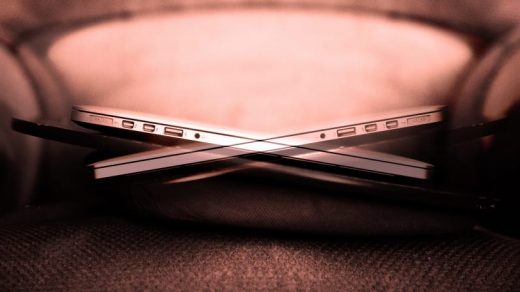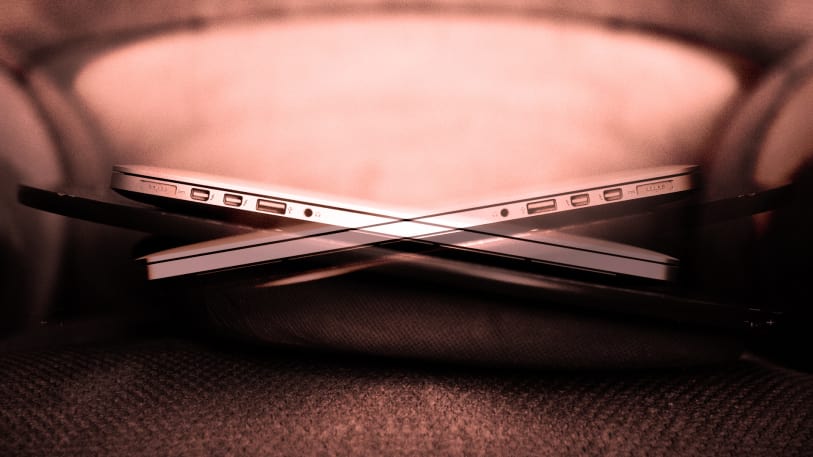How To Keep Your Laptop Safe When Traveling Through The Middle East
Travelers flying from the Middle East to the United States and the United Kingdom now face an unexpected snag: A ban on large electronics like laptops and tablets in the cabin on many flights. Those passengers are now required to check tablets and laptops in with their baggage. Depending on who you talk to, the move is either a response to a recent terror threat involving a fake iPad or a protectionist measure designed to steer business travelers toward American and British legacy carriers.
The laptop ban impacts all flights, direct or connecting, that depart Egypt’s Cairo airport, Jordan’s Queen Alia, Kuwait’s Kuwait International, Qatar’s Hamad, Saudi Arabia’s King Abdulaziz and King Khalid airports, Turkey’s Ataturk, Mohammed V Airport in Morocco, and Abu Dhabi and Dubai airports in the United Arab Emirates. The ban does not extend, however, to Israel’s Ben-Gurion or Lebanon’s Beirut-Rafic Hariri airports.
For American and British travelers returning from these destinations, this poses a big problem: You either have to leave your laptop or tablet at home or risk having your expensive electronics stolen from your checked luggage.
It’s a big headache for business travelers. Andrew Sheivachman, a writer for business travel site Skift, tells Fast Company that “This will definitely hurt business travelers more than leisure travelers. Business travelers almost always travel with a laptop, and often work in the cabin during a flight. There is also a major data security issue for companies here; if your workers are going to have to check laptops containing sensitive information, it presents a large security risk. I would expect companies to have workers simply avoid these direct routes by using a connecting flight that won’t be affected by the ban. Most leisure travelers tend to leave their laptops at home.”
We spoke to the experts, and learned about a few options. Keep in mind that not all solutions fit every traveler. Vacationers visiting the pyramids, business travelers meeting with clients in Istanbul, and human rights activists working with dissidents in the Gulf all have very different needs and risk profiles. And, as always, ask your airline for guidance on the laptop ban as this is a developing situation.
But even if the laptop ban is a real headache, there are still a few ways to have a productive business trip or use your iPad on vacation:
Check Your Electronics… But Be Careful
Different airlines are reacting differently to the in-cabin electronics ban. Emirates and Turkish Airlines, for instance, are letting customers keep their electronics up until boarding, when they are then collected by employees and placed in the cargo holds. At other airlines, passengers may have to place their electronics into their checked luggage–if you’re on a flight departing from one of the impacted airports, ask your airline for guidance.
Mark Deane, the CEO of ETS Risk Management, recommends business travelers “wipe your laptop of all data, storing it in whichever system your company uses like a secure cloud or server. This is also best practice when traveling to counter corporate espionage and for data protection.”
“Then place only the files that you need in an encrypted portable drive and/or a secure cloud service like AWS,” Deane added. “When your laptop goes in the hold, your data is not at risk. Your encrypted thumb drive stays with you.“
First-class and business-class passengers on Etihad are also getting complimentary use of iPads during their flight.
Buy A Cheap Computer Or Tablet For The Trip
If traveling internationally, it’s not the worst idea to leave your usual laptop at home and buy a cheap, temporary tablet or laptop for the trip. A new Amazon Fire tablet costs less than $50 these days, and a serviceable (though not great) netbook or Chromebook can be purchased online for less than $200.
There’s a second bonus–these devices can help protect business travelers from unwanted snooping at the hotel, coffee shop, or airport. Jordan Arnold, senior managing director at K2 Intelligence, tells Fast Company that “In the digital age, visiting certain countries means bringing home unwanted souvenirs that you never saw or even knew you acquired. Alternatively, you can travel with clean devices and leave any potential cyber baggage at the curb.”
Mail Your Computer Back Home
There’s an additional option: Bringing your regular iPad or laptop with you, and shipping it back home using either the local post office or an international service like UPS, FedEx, or DHL.
This helps avoid the airport check-in bottleneck, but has several negatives: It’s expensive, you need to pack carefully to avoid breaking your electronics, and in some countries (such as Egypt or Turkey), you’ll need a working knowledge of the local language to navigate the post office.
Ditch The Technology
We bring our computers and tablets everywhere these days. Although this option isn’t tenable for many business travelers, you could always just leave your laptop at home and enjoy a computer-free trip.
Gabe Rizzi, president of Travel Leaders Corporate, recommends “Breaking out the pen and paper. Sometimes it’s helpful to be able to map things out and plan by writing it down. Or make an old-fashioned to do list. Also, get to know your fellow travelers. If people are in the mood for conversation, you could meet a valuable business contact—maybe even your next client.”
But, let’s be realistic… you’ll probably be doing this with your phone in your pocket. As of press time, you can still use your smartphone on flights departing all these international airports. So plug in your Bluetooth keyboard, get your mobile productivity apps ready, and start crankin’.
(36)











